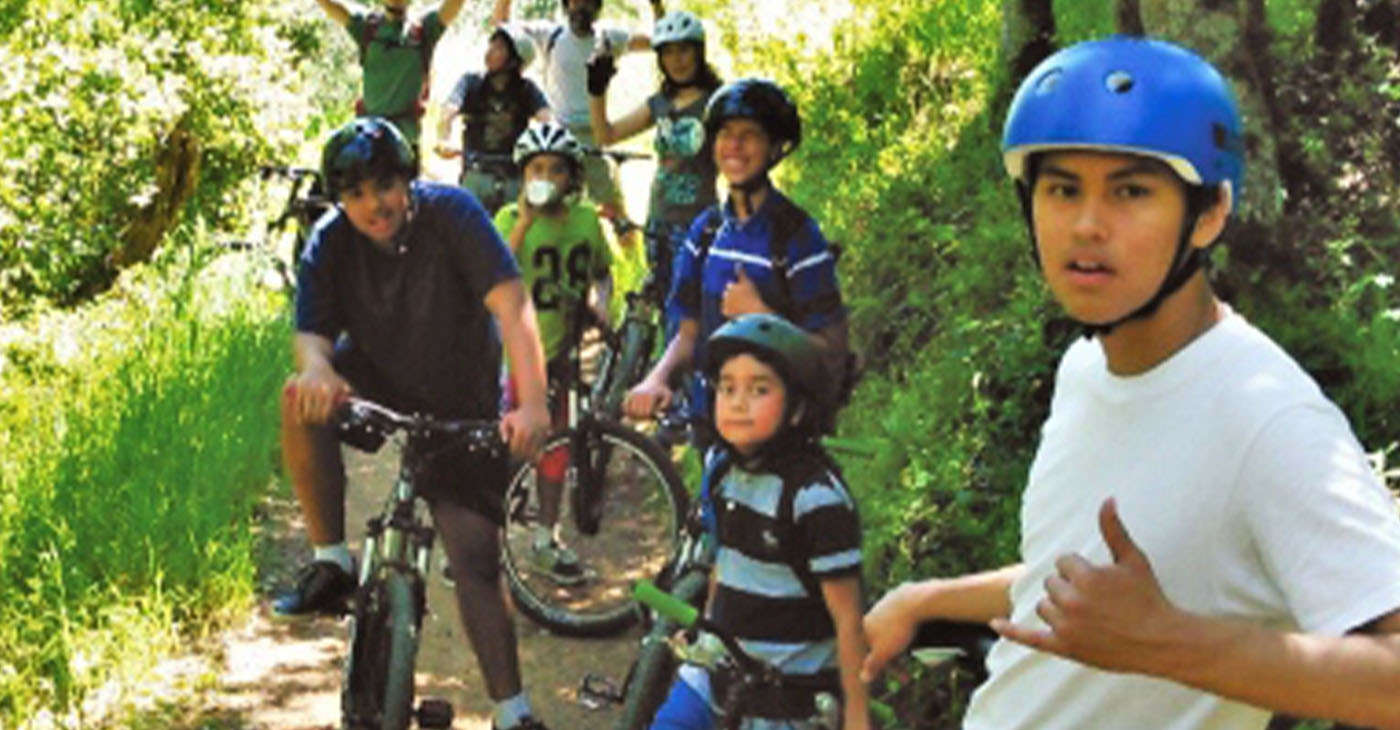Bay Area
Grants Focus on Key Barriers to Parks: Parks Equity Roundtable identifies barriers local organizations can focus on
Over the next few months, up to $200,000 will be awarded to Marin County community-based organizations to help overcome barriers and connect communities to parks. The maximum grant is $8,000 per applicant. Over the next few months, up to $200,000 will be awarded to Marin County community-based organizations to help overcome barriers and connect communities to parks. The maximum grant is $8,000 per applicant.

San Rafael, CA – Over the next few months, up to $200,000 will be awarded to Marin County community-based organizations to help overcome barriers and connect communities to parks. The maximum grant is $8,000 per applicant.
Marin County Parks is collaborating to overcome structural barriers that sometimes prevent Marin’s communities of color and other groups from enjoying parks and recreational opportunities.
Eliminating those barriers is a longstanding commitment for Marin County Parks. In 2021, its representatives joined Marin’s leaders and local partnering organizations to work toward equitable park access through a new Parks Equity Roundtable. Over the past year, the group has convened to build community, share resources, and overcome structural barriers preventing Marin’s communities of color and other groups from enjoying parks and recreational opportunities.
Most recently the roundtable members met to discuss barriers caused by and changes to county park fees and reservations policies. Conversations reinforced the value of Parks’ community grant program and its combined approach of providing free access with engaging programming through trusted relationships.
Data from a 2017 Parks visitor survey and 2021 Parks youth survey showed that County of Marin-owned regional parks attract significantly more racial diversity compared to open spaces that feature trails but fewer facilities. The parks best accommodate social gatherings of family and friends, a priority of many underserved groups including youths aged 13 to 24 and people of color according to the survey data. Roundtable leaders expressed that an approach that combines fee policy changes with expanded community-based organization and school partnerships would help maximize positive impacts for underserved Marin residents.
Even if not seeking the grant funding, Marin organizations working to improve social equity and remove barriers to parks can apply for limited free access to picnic areas and group sites to bring their programs outdoors. A form is available on the Community Grants webpage.
The roundtable specifically urged Marin County Parks and grant applicants this year to focus on empowering youth ambassadors to build relationships between their peers and parks; connecting across schools and other organizations to work on new program development, outreach, and engagement; providing engaging, culturally relevant art, music, health, and other culturally and linguistically appropriate events for all ages, with BIPOC (black, indigenous, people of color) and/or bilingual staff; shuttle services to park outings; and fostering cultural relevance and centering communities of color in decision making.
Established in 2014, Parks’ Breathe (Respira in Spanish) Community Grant Program invites local community organizations to complete an online form and apply for the competitive grants that facilitate more visits to local parks, introduces new residents to recreation via public outreach, and provides bridges to enjoying the outdoors. All qualifying criteria and funding restrictions, along with detailed information about the program and grant decision-making process, are available on the Breathe/Respira overview.
Parks will consider funding projects or programs that support an underserved community as long as that community is adequately described in relation to the Breathe/Respira program. Proposals will be reviewed after the June 2 application deadline, and grants will be recommended in July in partnership with the Parks and Open Space Commission. They will be announced in August following approval of grant agreements by the Board of Supervisors.
Breathe/Respira is funded by Parks Measure A, a countywide quarter-cent sales tax otherwise known as the Marin Parks, Open Space, and Sustainable Agriculture Transactions and Use Tax Ordinance of 2022. Parks and open space preserves across Marin are being cared for like never before thanks to Measure A. To find out more about the range of benefits this tax measure is bringing to your favorite outdoor places, check out the most recent Parks annual report.
Activism
Oakland Post: Week of July 24 – 30, 2024
The printed Weekly Edition of the Oakland Post: Week of July 24 – 30, 2024

To enlarge your view of this issue, use the slider, magnifying glass icon or full page icon in the lower right corner of the browser window. ![]()
Activism
Oakland Post: Week of July 17 -23, 2024
The printed Weekly Edition of the Oakland Post: Week of July 17 -23, 2024

To enlarge your view of this issue, use the slider, magnifying glass icon or full page icon in the lower right corner of the browser window. ![]()
Bay Area
Op-Ed Senate Bill 966 Threatens Health Equity in East Bay
My East Bay community is struggling to get by. A proposed State Senate bill would set us back even further. Serving the East Bay community has been my life’s work and my greatest joy. After leaving the Bay Area to complete my seminary, I returned home to found The Community Church in Oakland. From the outset of my time as the church’s pastor, I have been guided by the belief that my service must extend beyond the pulpit, because the health and economic needs of my community are so great. Our church has organized free food banks, COVID-19 testing clinics, and a housing and re-entry program for those suffering from addiction.

By Rev. Dr. Lawrence E. VanHook
Special to the Post
My East Bay community is struggling to get by. A proposed State Senate bill would set us back even further.
Serving the East Bay community has been my life’s work and my greatest joy. After leaving the Bay Area to complete my seminary, I returned home to found The Community Church in Oakland.
From the outset of my time as the church’s pastor, I have been guided by the belief that my service must extend beyond the pulpit, because the health and economic needs of my community are so great. Our church has organized free food banks, COVID-19 testing clinics, and a housing and re-entry program for those suffering from addiction.
Through my service, I have seen the challenges that our community members are facing. Oakland, my hometown, has the third-highest rate of violent crime in the state. The local economy is strained. Oakland-based businesses are leaving our community because they’re struggling to get ahead.
Both East and West Oakland has disproportionately high rates of respiratory illness due to heavy air pollution. While our local efforts have brought some aid to those in need, we are also counting on our state elected officials to help us address the systemic health disparities afflicting the community.
Chief among the health concerns of community members is having reliable and affordable access to prescription drugs. Equitable access to medications gives us the peace of mind that we can keep ourselves and our families healthy and safe. Our community should not have to choose between paying rent or purchasing prescriptions.
Unfortunately, rather than taking action to combat soaring prescription drug prices, some California lawmakers are pushing legislation that could raise patient costs at the pharmacy counter.
The Legislature is currently considering SB 966, a bill backed by special interests that would undercut the few tools we have to keep prescription drug costs contained, letting big drug companies increase their prices, profiting on the backs of working families – some of whom already live paycheck to paycheck.
SB 966 would target the fundamental programs through which small businesses, unions, and government health programs are able to offer their employees and members quality and affordable healthcare. Millions of Californians rely on these plans to obtain essential medications at the lowest-possible cost.
The bill would make it illegal for employers and unions to incentivize the administrators of their prescription drug plans to negotiate for the lowest possible cost for prescriptions. Right now, small businesses and unions can choose to pay these administrators more for taking on big drug companies and securing discounts – a choice that will be outlawed under this bill.
As a result, employers will have no leverage to stop big drug companies from setting sky-high prices, disproportionately impacting working families.
As these health costs quickly add up, employers will have little choice but to pass the increases down to their employees. That means California patients will see higher healthcare costs and co-pays.
From my perspective, most concerning is that the bill would exacerbate the health disparities impacting my community and other underserved populations. If SB 966 becomes law, the most vulnerable may be forced to skip prescription doses, stop filling their prescriptions, and avoid essential care.
By rejecting this cash grab by big drug companies, our state elected officials can send a clear message that they stand with the community, patients, and working families.
We cannot afford SB 966.
Rev. Dr. VanHook is the founder and pastor of The Community Church in Oakland and the founder of The Charis House, a re-entry facility for men recovering from alcohol and drug abuse.
-

 Arts and Culture3 weeks ago
Arts and Culture3 weeks agoRooted in Tradition: The Intricate History of Black Hair Braiding
-

 Bay Area4 weeks ago
Bay Area4 weeks ago“I Will Not Be Bullied,” Says Oakland Mayor Sheng Thao
-

 Bay Area2 weeks ago
Bay Area2 weeks agoPG&E Increases Rates While Bay Area Households Are Struggling to Stay Afloat
-

 Business3 weeks ago
Business3 weeks agoGov Newsom: Raising Fast Food Minimum Wage to $20 Pays Off as Jobs Multiply in Industry
-

 Activism4 weeks ago
Activism4 weeks agoOpponents of Mayor Sheng Thao Are Calling on Her to Resign Following FBI Raid
-

 Community1 week ago
Community1 week agoHundreds Come to Jehovah’s Witnesses’ Assembly Hall for Three-Day Program of ‘Good News’ in Fremont
-

 Bay Area2 weeks ago
Bay Area2 weeks agoJuneteenth Mass Shooting Suspect Charge with Multiple Counts of Felony Assault by Alameda County DA Pamela Price
-

 Activism4 weeks ago
Activism4 weeks agoOakland Coliseum Sale to AASEG: A Model for Community Development and Inclusion

















































